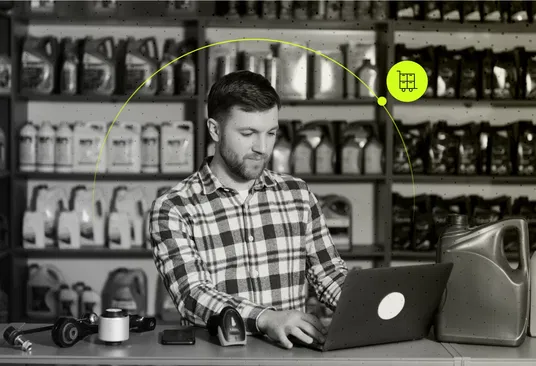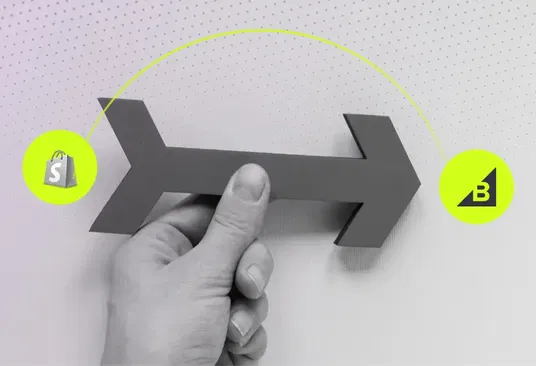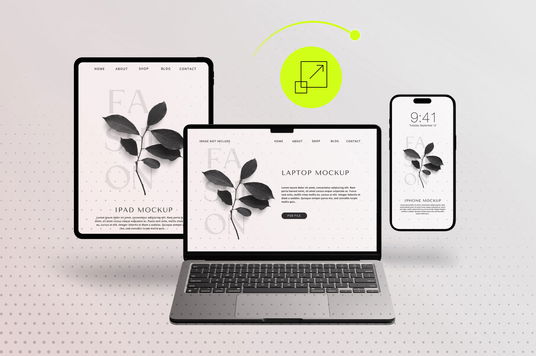B2B eCommerce for Automotive: What Wholesale Buyers Expect Online

- The B2B Automotive eCommerce Revolution
- Wholesale Customer Pricing Systems That Actually Work
- Bulk Order Upload Feature for Car Parts Buyers
- Gated Catalog for Automotive B2B eCommerce
- Advanced Account Management Features
- Purchase Order Support in Auto B2B Stores
- Dealer Login for Branded Car Parts Websites
- Streamlined Reorder Workflows for Wholesale Parts Buyers
- Restricted Product Access by Buyer Group
- Implementation Best Practices
- 🎯 Key Takeaways
- Ready to Choose the Right Development Partner?
- Frequently Asked Questions
The B2B Automotive eCommerce Revolution
The automotive aftermarket industry is experiencing a digital transformation that's reshaping how wholesale buyers interact with suppliers. Traditional phone-based ordering and paper catalogs are giving way to sophisticated B2B eCommerce platforms that offer wholesale customer pricing in auto ecommerce, advanced ordering capabilities, and personalized experiences.
Today's automotive wholesale buyers—from independent repair shops to large dealership networks—expect the same level of digital sophistication they experience as consumers. However, their B2B requirements are far more complex, involving tiered pricing structures, bulk ordering capabilities, and specialized account management features.
"B2B automotive buyers process 73% more orders online than they did three years ago, but 68% still abandon their carts due to inadequate B2B functionality."
— Automotive Aftermarket Industry Association, 2024 Digital Commerce ReportThe stakes are high. Automotive parts distributors who fail to meet these evolving expectations risk losing wholesale customers to competitors who offer superior digital experiences. This comprehensive guide explores the essential B2B features that automotive wholesale buyers expect from modern eCommerce platforms.
Wholesale Customer Pricing Systems That Actually Work
The foundation of any successful B2B automotive eCommerce platform is a robust wholesale customer pricing in auto ecommerce system. Unlike consumer pricing, automotive wholesale pricing involves complex tiered structures, volume discounts, and customer-specific agreements.
Multi-Tier Pricing Architecture
Automotive wholesale buyers expect pricing systems that reflect their business relationships and purchase volumes. Effective pricing architectures include:
- Volume-based tiers: Automatic pricing adjustments based on order quantity or annual purchase volume
- Customer group pricing: Different price levels for dealers, repair shops, and fleet managers
- Contract pricing: Custom pricing for specific customers based on negotiated agreements
- Geographic pricing: Regional pricing variations based on market conditions and shipping costs
"Implementing dynamic wholesale pricing increased our average order value by 34% and reduced pricing inquiries by 67%."
— Regional Auto Parts Distributor, Case Study AnalysisModern automotive eCommerce development services must integrate these pricing complexities seamlessly, ensuring that wholesale buyers see accurate, personalized pricing without manual intervention. while marketing teams use tools like a social media post generator to drive qualified traffic to these optimized B2B storefronts.
Real-Time Price Updates
Automotive parts pricing fluctuates based on manufacturer changes, market conditions, and inventory levels. Wholesale buyers need real-time pricing that reflects current market conditions and their specific customer agreements.
Bulk Order Upload Feature for Car Parts Buyers
One of the most critical features automotive wholesale buyers demand is a sophisticated bulk order upload feature for car parts buyers. Traditional one-by-one product selection doesn't scale for businesses ordering hundreds of SKUs regularly.
CSV Upload Functionality
Professional automotive buyers expect to upload orders via CSV files containing:
- Part numbers (both manufacturer and distributor SKUs)
- Quantities required
- Preferred delivery dates
- Special instructions or notes
The system must validate part numbers, check inventory availability, and flag any issues before order submission. Advanced platforms also support multiple file formats and provide detailed error reporting.
Integration with Inventory Management Systems
Many automotive businesses use inventory management software to track their parts needs. B2B eCommerce platforms should integrate with popular systems like:
- Mitchell 1
- Shop-Ware
- R.O. Writer
- AutoFluent
This integration enables automatic reordering based on inventory levels and historical usage patterns, streamlining the procurement process for busy automotive professionals.
Gated Catalog for Automotive B2B eCommerce
A gated catalog for automotive B2B ecommerce is essential for managing different customer relationships and protecting sensitive pricing information. Not all automotive parts should be visible to all customers, and pricing must remain confidential.
Customer-Specific Product Visibility
Effective gated catalogs provide:
- Brand restrictions: Some customers may only access specific manufacturer lines
- Category limitations: Certain product categories restricted to qualified buyers
- Geographic restrictions: Territory-based product availability
- Certification requirements: Access to professional-grade parts only for certified technicians
"Gated catalogs helped us increase margins by 23% while improving customer satisfaction through more relevant product displays."
— National Automotive Parts Chain, Implementation StudyDynamic Content Personalization
Beyond simple access control, modern gated catalogs personalize the entire browsing experience. Wholesale buyers see product recommendations based on their purchase history, seasonal trends, and business type.
Advanced Account Management Features
Automotive wholesale buyers need comprehensive account dashboards for B2B car part customers that provide complete visibility into their business relationship with suppliers.
Comprehensive Account Dashboards
Professional account dashboards should include:
- Order history and tracking: Complete visibility into past and current orders
- Invoice management: Digital invoices with payment tracking
- Credit status: Available credit limits and payment terms
- Performance metrics: Purchase volume, frequency, and trends
- Document library: Access to warranties, technical specifications, and installation guides
Multi-User Account Management
Automotive businesses often have multiple employees who need system access with different permission levels:
- Administrators: Full account access and user management
- Purchasers: Ordering privileges with spending limits
- Technicians: Product lookup and specification access
- Managers: Reporting and analytics access
Purchase Order Support in Auto B2B Stores
Professional automotive buyers require robust purchase order support in auto B2B stores to maintain proper procurement processes and financial controls.
PO Generation and Management
Comprehensive PO systems provide:
- Automatic PO number generation with custom formatting
- Approval workflows for orders exceeding spending limits
- PO modification and cancellation capabilities
- Integration with accounting systems like QuickBooks and SAP
Approval Workflows
Many automotive businesses require multi-level approval for large orders. The system should support configurable approval workflows based on order value, product categories, or customer-specific rules.
Dealer Login for Branded Car Parts Websites
Automotive manufacturers and distributors need sophisticated dealer login for branded car parts websites that provide authorized dealers with exclusive access to brand-specific content and pricing.
Brand-Specific Portals
Dealer portals should offer:
- Exclusive product lines: Access to dealer-only parts and accessories
- Marketing materials: Product images, specifications, and promotional content
- Training resources: Installation guides and technical documentation
- Warranty processing: Digital warranty claims and processing
Dealer Certification Integration
Advanced systems integrate with dealer certification programs, automatically updating access levels based on training completion and certification status.
Streamlined Reorder Workflows for Wholesale Parts Buyers
Efficient reorder workflows for wholesale parts buyers are crucial for maintaining inventory levels and reducing administrative overhead in automotive businesses.
One-Click Reordering
Sophisticated reorder systems provide:
- Favorite lists: Saved product collections for quick reordering
- Order templates: Predefined order sets for regular purchases
- Smart suggestions: AI-powered recommendations based on purchase patterns
- Seasonal adjustments: Automatic quantity adjustments based on historical seasonal demand
Automated Replenishment
Advanced platforms offer automated replenishment features that:
- Monitor inventory levels through API integrations
- Generate automatic reorder suggestions
- Process approved orders without manual intervention
- Adjust quantities based on sales velocity and lead times
"Automated reorder workflows reduced our procurement time by 78% and eliminated stockouts on fast-moving parts."
— Independent Auto Repair Chain, Efficiency StudyRestricted Product Access by Buyer Group
Implementing restricted product access by buyer group ensures that automotive wholesale buyers only see products relevant to their business type and certification level.
Certification-Based Access
Different automotive professionals require access to different product categories:
- ASE-certified technicians: Access to professional-grade diagnostic tools
- Licensed dealers: OEM parts and warranty-eligible components
- Fleet managers: Commercial-grade parts and bulk packaging options
- DIY customers: Consumer-grade parts with installation guides
Geographic and Legal Restrictions
Automotive parts distribution often involves geographic restrictions and legal compliance requirements. The system must enforce:
- Territory-based product availability
- Emissions compliance restrictions by state
- Professional-use-only product limitations
- Export control compliance for international customers
Implementation Best Practices
Successfully implementing B2B automotive eCommerce features requires careful planning and execution. Here are the key considerations:
Platform Selection
Choose eCommerce platforms that natively support B2B functionality:
- BigCommerce B2B Edition: Built-in B2B features with automotive-specific apps
- Shopify Plus: Extensive B2B app ecosystem and customization options
- Adobe Commerce: Enterprise-level B2B capabilities with advanced customization
- Custom solutions: Tailored platforms for unique automotive business requirements
Integration Requirements
Successful automotive B2B eCommerce requires integration with:
- ERP systems for inventory and pricing synchronization
- CRM platforms for customer relationship management
- Accounting software for financial processing
- Shipping carriers for real-time rates and tracking
- Parts databases for accurate fitment information
Security and Compliance
Automotive B2B platforms must maintain strict security standards:
- PCI DSS compliance for payment processing
- SOC 2 certification for data protection
- GDPR compliance for international customers
- Regular security audits and penetration testing
🎯 Key Takeaways
- Wholesale pricing complexity requires sophisticated systems: Multi-tier pricing, customer-specific agreements, and real-time updates are essential for automotive B2B success.
- Bulk ordering capabilities are non-negotiable: CSV upload features and inventory system integration dramatically improve efficiency for wholesale buyers.
- Gated catalogs protect relationships and margins: Customer-specific product visibility and pricing confidentiality are crucial for B2B automotive commerce.
- Account management drives customer retention: Comprehensive dashboards and multi-user access improve the wholesale buying experience.
- Purchase order support ensures compliance: Professional procurement processes require robust PO generation and approval workflows.
- Dealer portals strengthen brand relationships: Exclusive access and brand-specific content improve dealer loyalty and sales performance.
- Automated reordering reduces operational overhead: Smart workflows and replenishment features streamline repeat purchases.
- Restricted access maintains professional standards: Certification-based and geographic restrictions ensure appropriate product access.
Ready to Choose the Right Development Partner?
Building a successful automotive B2B eCommerce platform requires specialized expertise in wholesale functionality, complex pricing systems, and industry-specific requirements. Our team specializes in creating high-performing automotive eCommerce solutions with advanced B2B features like tiered pricing, bulk ordering, and gated catalogs.
Schedule your free consultation today and discover how we can help you build an automotive B2B platform that meets wholesale buyers' expectations and drives business growth.
Frequently Asked Questions
1. What's the most important B2B feature for automotive eCommerce platforms?
Wholesale customer pricing systems are the foundation of automotive B2B eCommerce. Without accurate, tiered pricing that reflects customer relationships and purchase volumes, wholesale buyers cannot effectively use the platform. This includes multi-tier pricing, customer-specific agreements, and real-time price updates based on market conditions.
2. How does bulk order upload functionality work for car parts buyers?
Bulk order upload features allow automotive wholesale buyers to upload CSV files containing part numbers, quantities, and delivery requirements. The system validates part numbers against inventory, checks availability, and flags any issues before order submission. Advanced platforms also integrate with popular inventory management systems like Mitchell 1 and Shop-Ware for automated reordering.
3. Why do automotive B2B sites need gated catalogs?
Gated catalogs protect sensitive pricing information and ensure customers only see products relevant to their business type and certification level. This includes brand restrictions, category limitations, geographic restrictions, and certification requirements. Gated catalogs help maintain margins while providing personalized experiences for different customer segments.
4. What should account dashboards include for B2B car part customers?
Comprehensive account dashboards should provide order history and tracking, invoice management, credit status monitoring, performance metrics, and document libraries. They should also support multi-user access with different permission levels for administrators, purchasers, technicians, and managers within the same organization.
5. How important is purchase order support for automotive wholesale buyers?
Purchase order support is essential for professional automotive buyers who need proper procurement processes and financial controls. This includes automatic PO generation, approval workflows for large orders, modification capabilities, and integration with accounting systems like QuickBooks and SAP.
6. What makes dealer login systems effective for branded car parts websites?
Effective dealer portals provide exclusive access to dealer-only parts, marketing materials, training resources, and warranty processing capabilities. They should integrate with dealer certification programs to automatically update access levels based on training completion and certification status.
6. How do reorder workflows improve efficiency for wholesale parts buyers?
Streamlined reorder workflows include favorite lists, order templates, smart suggestions based on purchase patterns, and seasonal adjustments. Advanced platforms offer automated replenishment that monitors inventory levels, generates reorder suggestions, and processes approved orders without manual intervention.
7. What types of restricted product access are needed in automotive B2B?
Restricted access should be based on certification levels (ASE-certified technicians, licensed dealers, fleet managers), geographic and legal restrictions (territory-based availability, emissions compliance), and professional-use requirements. This ensures customers only access appropriate products while maintaining compliance with industry regulations.
About 1Center
1Center is a leading eCommerce development agency specializing in automotive and B2B commerce solutions. Our team of certified developers, B2B specialists, and automotive industry experts has delivered successful automotive eCommerce projects across platforms including Shopify Plus, BigCommerce, Adobe Commerce, and custom solutions. We combine deep technical expertise with automotive industry knowledge to create B2B platforms that streamline wholesale operations, improve customer relationships, and drive sustainable business growth.
Written byPublished July 01, 2025
1Center


